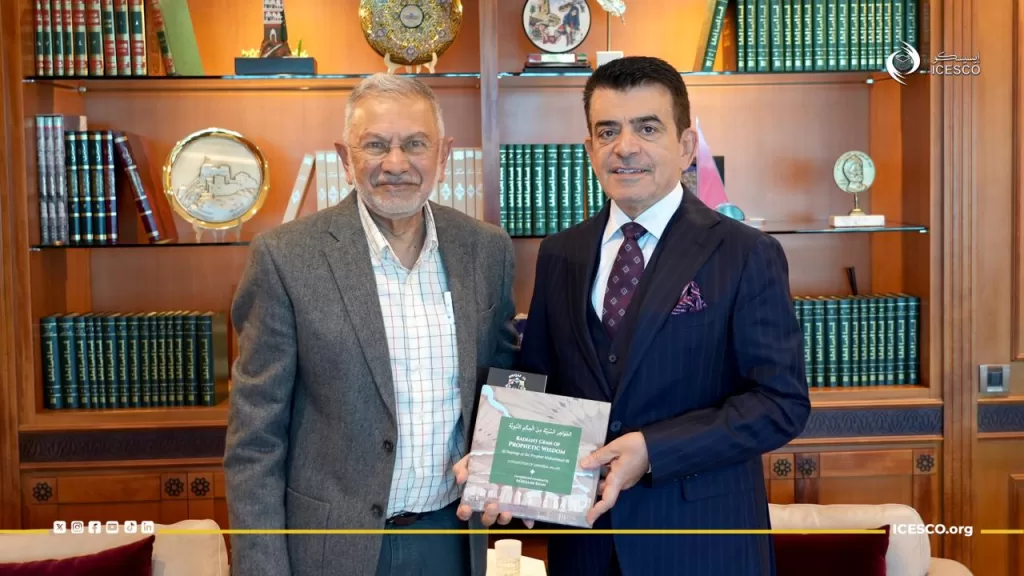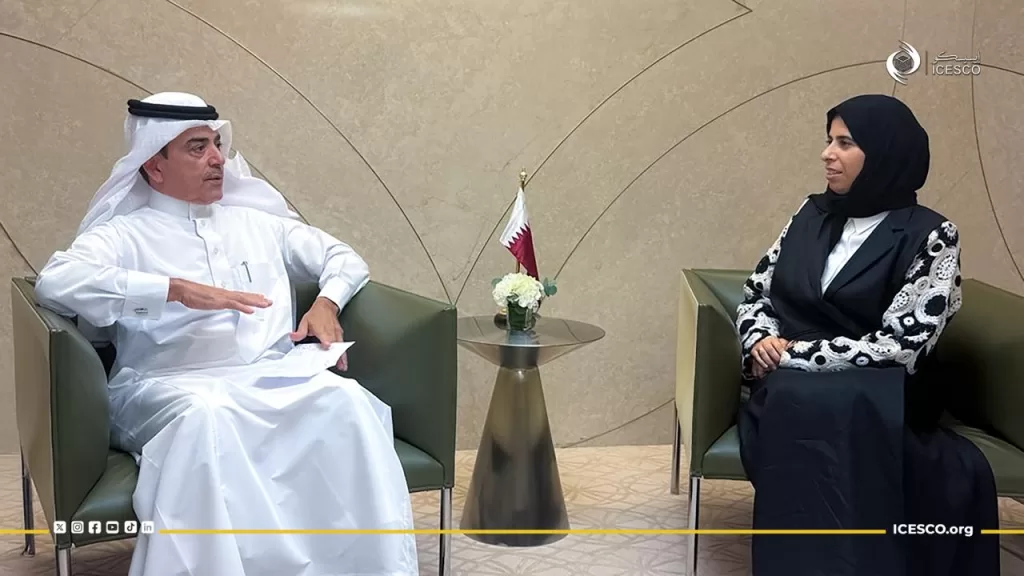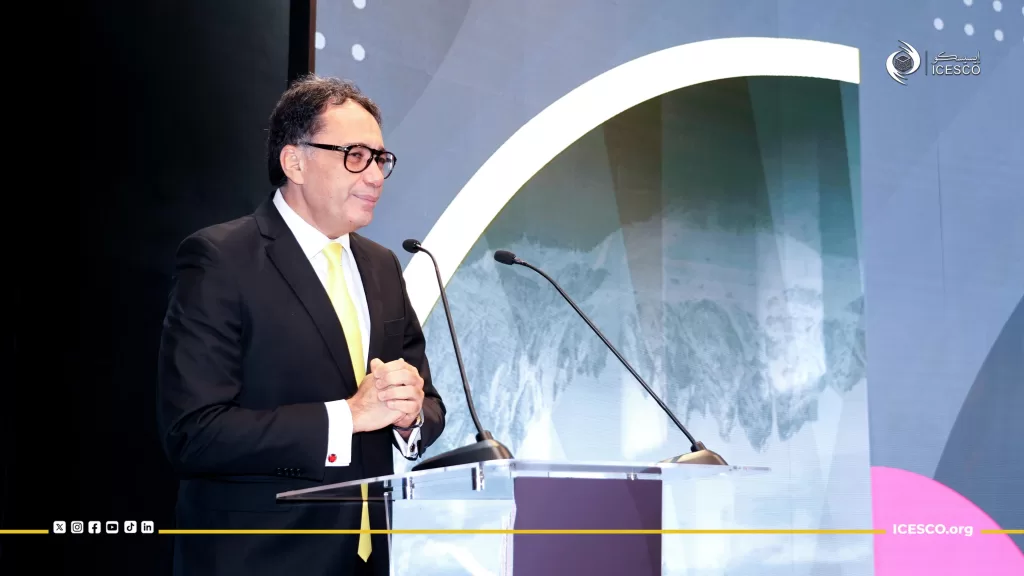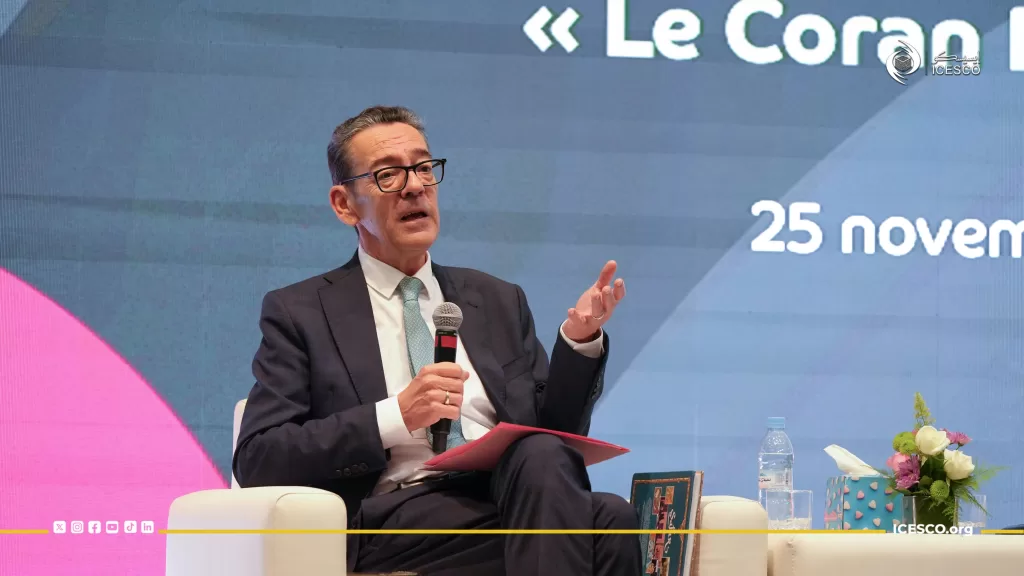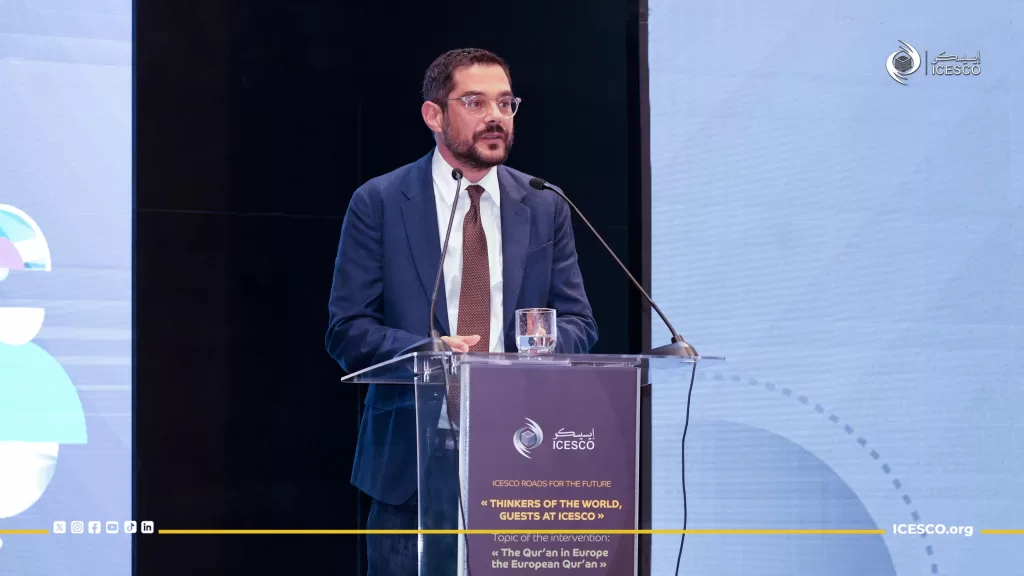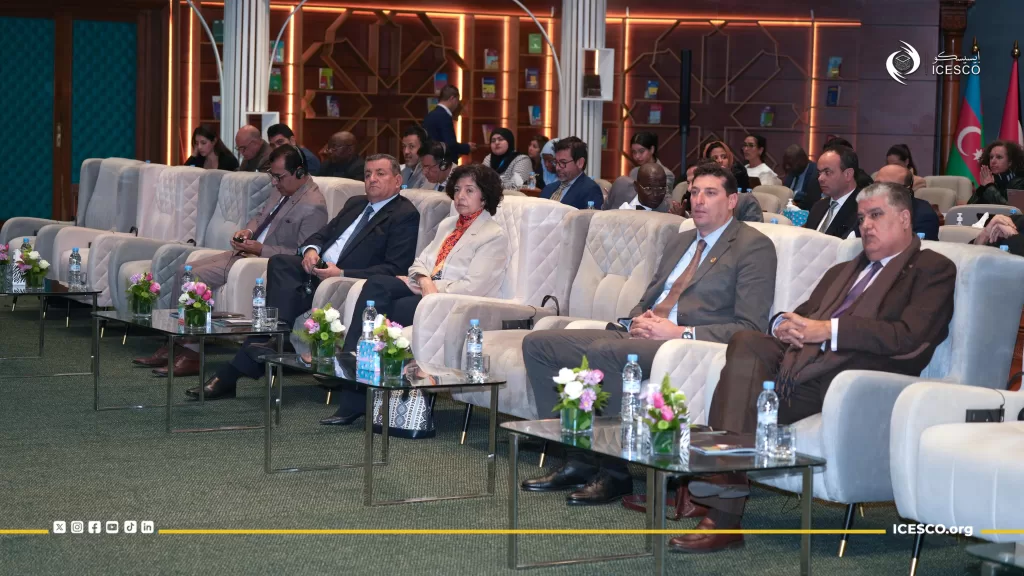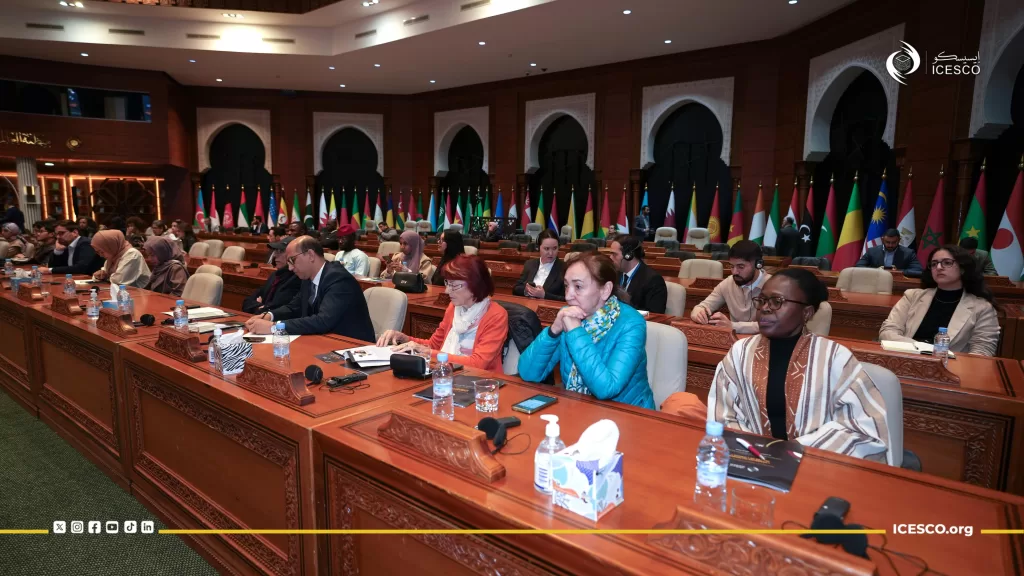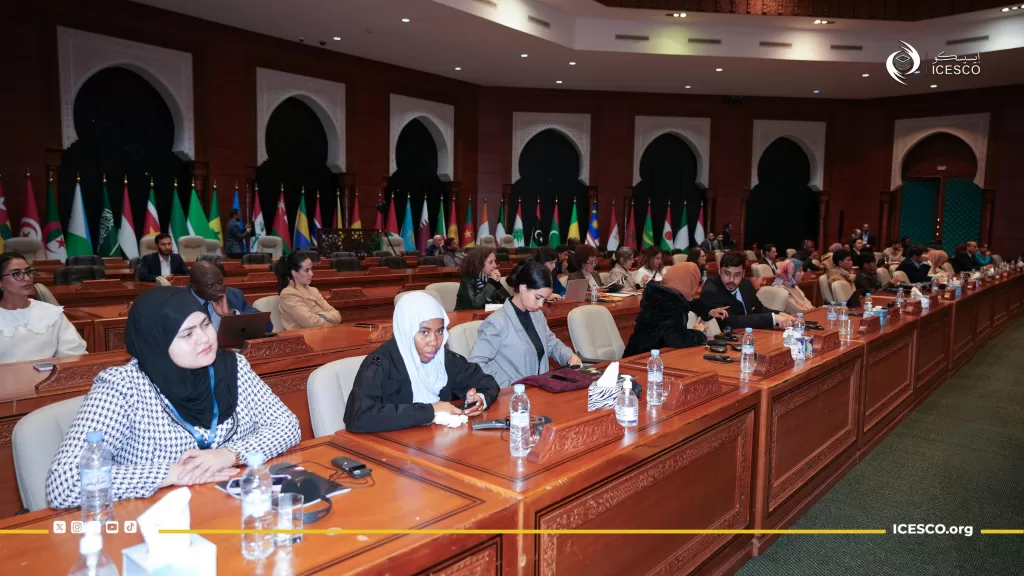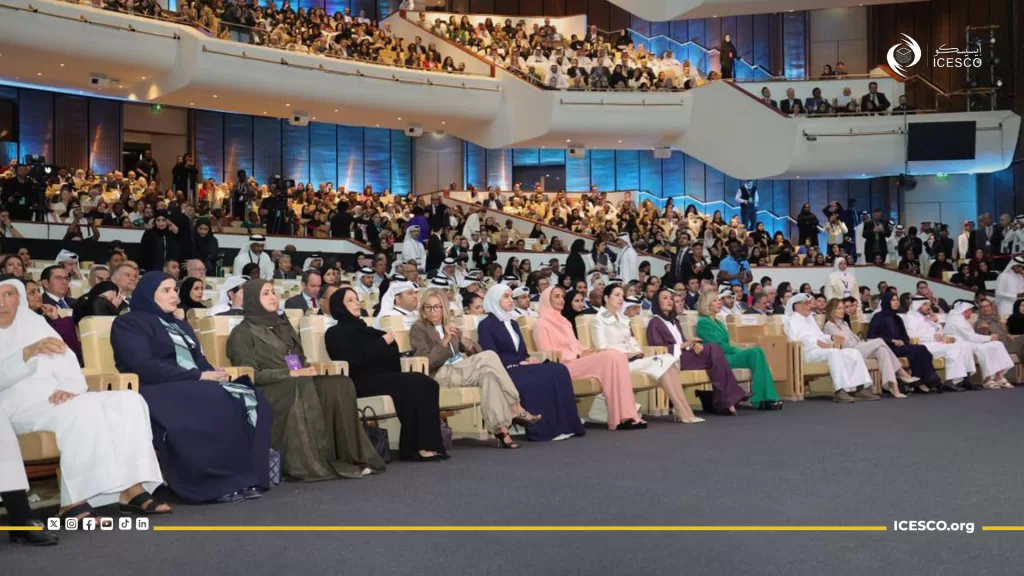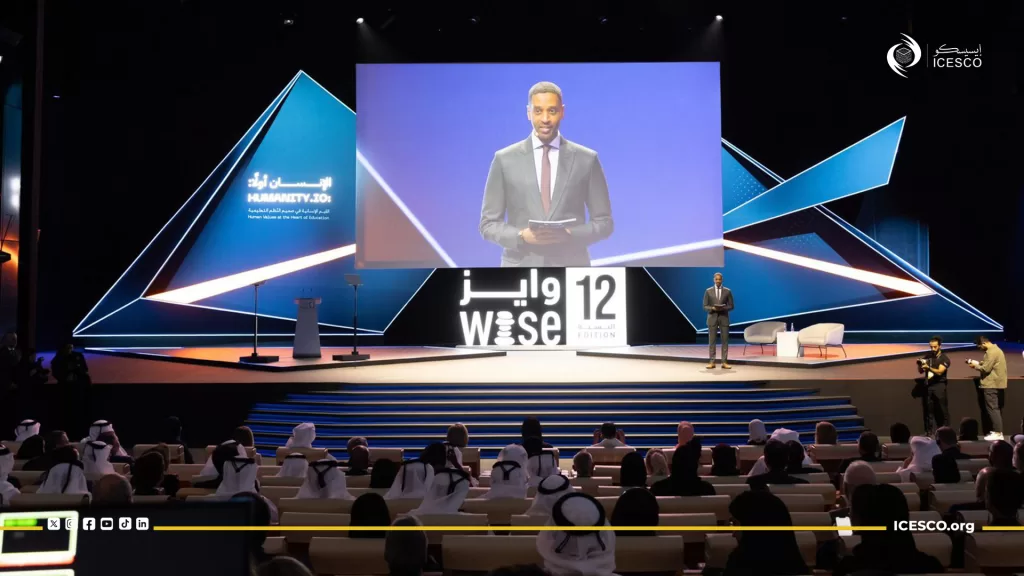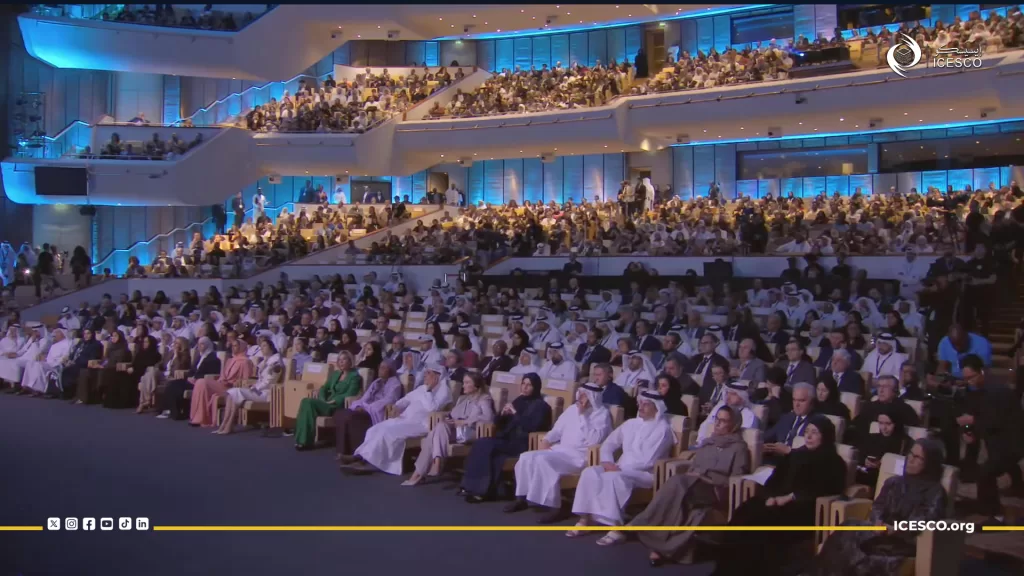Dr. Salim M. AlMalik, Director-General of the Islamic World Educational, Scientific and Cultural Organization (ICESCO), received Mr. Zeinoul Abedien Cajee, CEO of the National Awqaf Foundation of South Africa (Awqaf SA), and together they discussed mechanisms for developing joint programs aimed at supporting Arabic language education and anchoring the values of peace, coexistence and civilizational dialogue.
During the meeting, held on Thursday, November 27, 2025, at the Organization’s headquarters in Rabat, Dr. AlMalik highlighted ICESCO’s pioneering efforts in its areas of competence, casting light on its strategies to promote the Arabic language’s presence at the global level. He added that the Organization works toward developing methods for teaching Arabic to non-Arabic speakers through the work of its Center of Arabic for Non-Arabic Speakers as well as its regional educational centers.
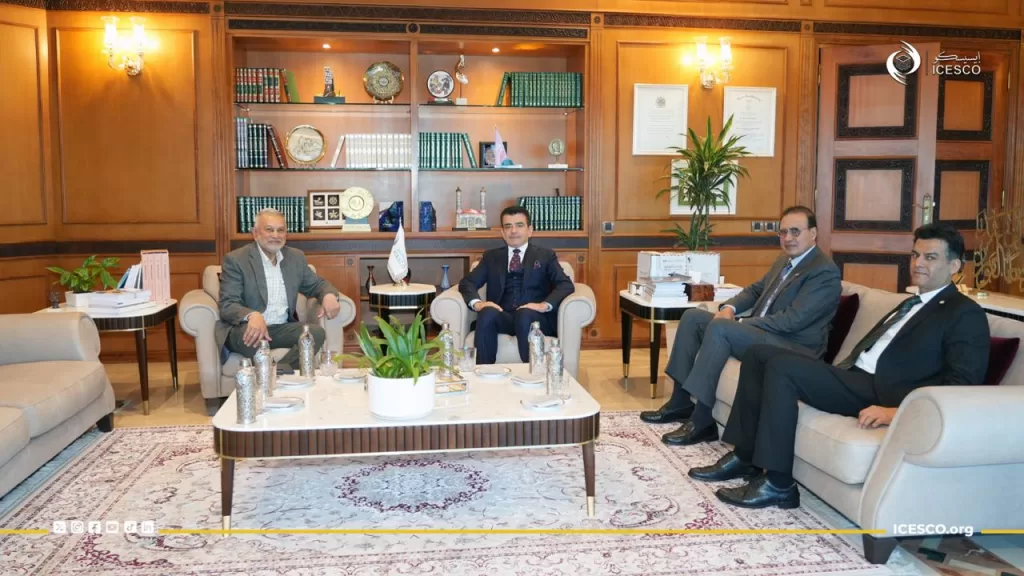
Likewise, Dr. AlMalik stressed the Organization’s keenness to build a fruitful partnership with the Foundation, with a view to consolidating the roles of Arabic as a bridge for cultural communication and a tool for spreading tolerance. He also expressed ICESCO’s readiness to dispatch specialized experts to train educational professionals in South Africa and contribute to the development of curricula and related skills.
For his part, Mr. Zeinoul Abedien Cajee commended the key roles ICESCO plays within its areas of competence, and reviewed his Foundation’s efforts to promote Arabic learning in South Africa. The CEO also discussed Awqaf South Africa’s activities in the fields of Awqaf and investment for the advancement of communities.
The meeting was attended by Dr. Abdelilah Benarafa, ICESCO Deputy Director-General, and Dr. Hani Al-Balawi, Expert at the Center for Civilizational Dialogue.
